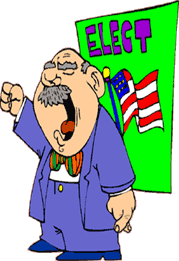
Dear Diary,
Who do you Trust?
March 28, 2006
(CBS) The renowned and trusted Encyclopedia Britannica has been known for centuries as "the foremost authority on a topic."
Even Wikipedia, the free online encyclopedia, describes the Britannica series of reference books that way. But as CBS News correspondent Mike Brzezinski reports, for students like 16-year-old Jordan Browning, Wikipedia, not Britannica, is often the first stop for research.
Why?
"It's good to have different encyclopedias out there," Browning says.
While the Encyclopedia Britannica pays scholars to write and fact check its articles, Wikipedia relies on anybody with an Internet connection to create and monitor and eidt its entries.
Which one is more accurate? Last December, the scientific journal Nature found that among 42 entries tested, there was little difference in the error rate between Wikipedia and Britannica.
That's not exactly music to the ears of Jorge Cauz, the president of Encyclopedia Britannica. He maintains that there is no substitute for his company's careful editing.
"We strive for three things: objectivity, factually correct information, and understandable information," he says. "It's clearly evident others are not achieving it." When asked if he means Wikipedia, he replies, "Yeah, of course."
This week, Britannica put that in black and white with a line-by-line rebuttal of the Nature report and an open letter to the journal.
"We were surprised to see them take it so hard," says Jimmy Wales, the founder of Wikipedia.
Wales acknowledges there have been some high-profile mistakes on his site — and that Wikipedia has a ways to go to match its long-established rival. But he says he expects that to change.
"I think it's very difficult for a traditional model like Britannica ... in the long run to compete with, you know, thousands of people working day and night," he says. "This is about a rigorous editorial process versus community-generated content."
And it's students like Jordan Browning who will decide the winner of the encyclopedia war.
©MMVI, CBS Broadcasting Inc. All Rights Reserved.




